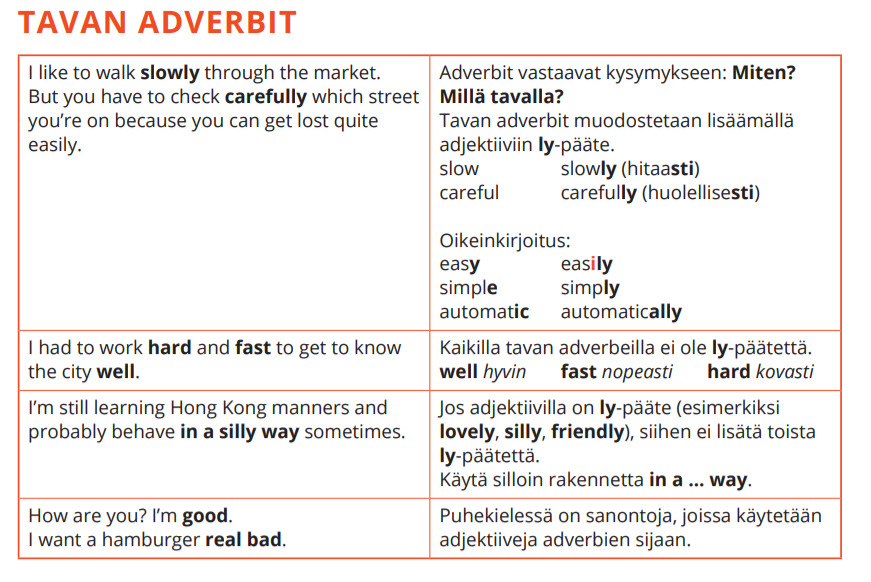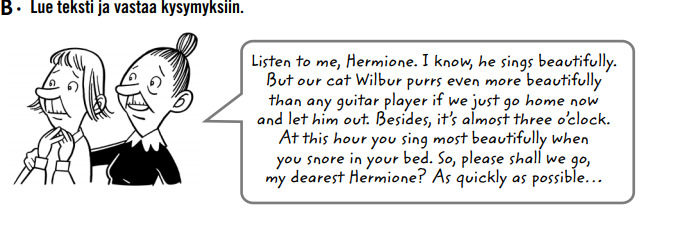Adverbit ja niiden vertailu

Drive carefully
Adjektiivista adverbiksi
Täytä vihjeen mukaan
Täydennä adverbi oikeassa muodossa, käytä suluissa olevaa adjektiivia pohjana.
Adverbien vertailu
Katso video adverbin vertailusta
Adverbien vertailu
Täydennä adverbien komparatiivimuodoilla. Adverbin saat edellisen lauseen adjektiivista.
